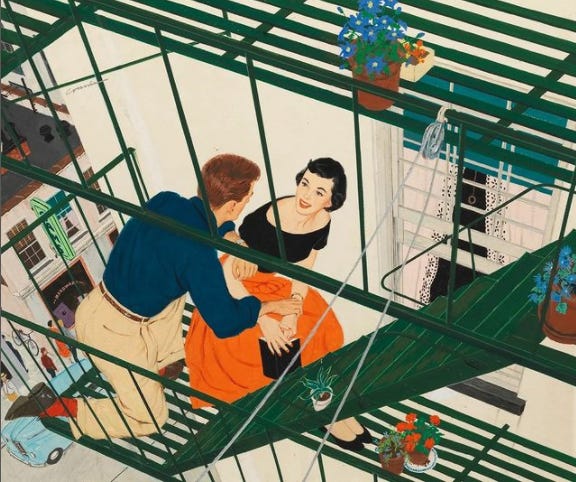Dearest,
You know how deeply I love good stories. So in today’s letter, I am carving out a nook for a lovely story shared by Jack Kornfield called, Water Into Wine. Hope it makes you smile.
A century ago, a young student at the great Oxford University in England was taking an important examination in religious studies. The examination question for this day was to write about the religious and spiritual meaning in the miracle of Christ turning water into wine. For two hours he sat in the crowded classroom while other students filled their pages with long essays, to show their understanding. The exam time was almost over and this one student had not written a single word. The proctor came over to him and insisted that he commit something to paper before turning it in. The young Lord Byron simply picked up his hand and penned the following line: “The water met its Master, and blushed.”
Hawww, right?!
I hope this week you feel all warm and toasty and blush a lot. ❤️
Some verses:
Ethics by Linda Pastan
In ethics class so many years ago
our teacher asked this question every fall:
If there were a fire in a museum,
which would you save, a Rembrandt painting
or an old woman who hadn’t many
years left anyhow? Restless on hard chairs
caring little for pictures or old age
we’d opt one year for life, the next for art
and always half-heartedly. Sometimes
the woman borrowed my grandmother’s face
leaving her usual kitchen to wander
some drafty, half-imagined museum.
One year, feeling clever, I replied
why not let the woman decide herself?
Linda, the teacher would report, eschews
the burdens of responsibility.
This fall in a real museum I stand
before a real Rembrandt, old woman,
or nearly so, myself. The colors
within this frame are darker than autumn,
darker even than winter — the browns of earth,
though earth’s most radiant elements burn
through the canvas. I know now that woman
and painting and season are almost one
and all beyond the saving of children.
Grief by Akhil Katyal
In Urdu Class by Akhil Katyal
Soft wisdom:
How different things might be if, rather than saying "I think I'm in love," we were saying "I've connected with someone in a way that makes me think I'm on the way to knowing love." Or if instead of saying "I am in love" we say "I am loving" or "I will love." Our patterns around romantic love are unlikely to change if we do not change our language.
bell hooks, All About Love
Some tunes:
Down memory lane with Mac Conner

Goodness to walk away with from the nook:
Treasure: Get the best recommendations every day
Watch:
Get Empowered: Food and Mood, are they linked?
Feed Yourself: Oat x Banana x Cinnamon Smoothie
Wondering how you can support me?
You can contribute via GPay or UPI and show The Nook some love here: riya.roy6@axisbank
or,
See you next Sunday,
Love, Riya













